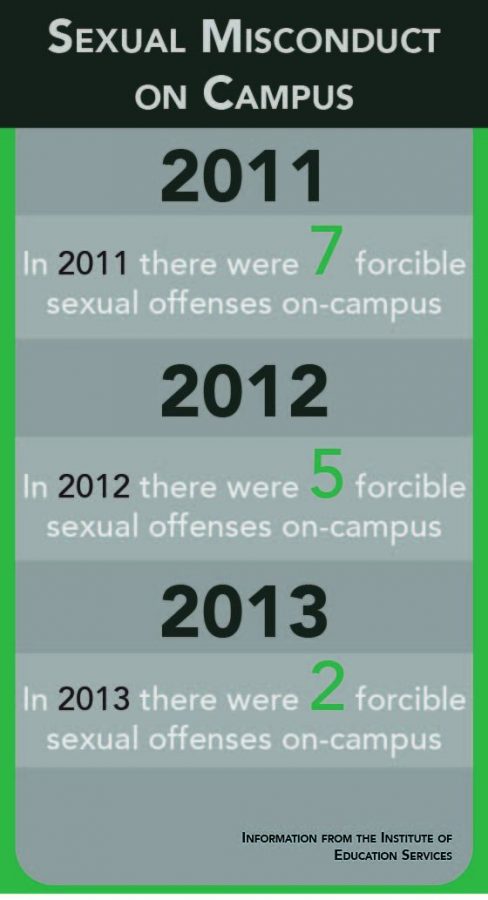Online course strengthens sexual misconduct prevention
sexoffences
April 27, 2015
As the issue of sexual assault and how to combat it remains a prominent topic across the nation’s college campuses, Columbia is asking its students to become more aware of the facts about sexual misconduct and to “think about it.”
The college has partnered with LawRoom.com, an online course website, to offer “Think About It,” a mandatory online training module for students, staff and faculty. The module is meant to provide an overview of inappropriate college misconduct on campus, methods of sexual assault prevention, important federal laws pertaining to the topic and the college’s support systems and off-campus resources, said Mark Kelly, vice president of Student Success.
Current students are required to complete the course by May 30. The college will send reminders and follow up individually with students who have yet to finish the program, said Kelly.
Students entering the college for the Fall 2015 Semester will be required to complete the course as part of the orientation process. The college will also host a forum next fall to receive feedback about the college’s sexual misconduct policy and survey individuals about their experiences on campus.
“[The module] isn’t driven by an incident, but it is driven by an understanding that this is a real issue—it’s an issue that now has a spotlight on it,” Kelly said. “We have become far better educated ourselves, and we have strengthened all of our processes. We trained investigators and hearing officers, but the most important responsibility is to educate the community, and that is the most challenging because our community is everywhere.”
Approximately 200 other colleges have used the training module, which was chosen among several others, because it is easily accessible online and follows the college’s sexual misconduct policy and procedures, said Sharon Wilson-Taylor, associate vice president and dean of Students.
“We know we have a little more sophisticated student body and some of the programs were too corny or too quirky,” said Beverly Anderson, assistant dean of Student Health & Support and Title IX coordinator. “We felt like this one spoke more to our students and included more diversity as well.”
At the end of the program, each individual is able to complete a survey that ranks the module from one to five. Approximately 400 participants completed the survey, as of press time, and Kelly said its average ranking was 3.75 out of five.
Many students are complaining that the course takes too much time to complete and that they end up simply clicking through it without reading all of the information. On average, the module takes 45–60 minutes to complete, but Kelly said students do not have to finish the module in one sitting.
“This is too important, and yes, it requires effort by our students, but no learning comes without effort,” Kelly said.
Wilson-Taylor and Anderson have pursued various strategies since August 2014 to educate the college community about sexual misconduct. A new deputy Title IX coordinator will also be hired to work with Anderson to address issues of sexual misconduct with faculty and students, Kelly said.
Students have designed, organized and participated in several programs that highlight the college’s policies on sexual misconduct to explain how students can safely intervene if they witness or experience discriminatory behavior and suggest efforts students can make to try to prevent future instances.
Sara Kalinoski, a sophomore art + materials conservation major and president of the Student Government Association, worked on the Sexual Assault Awareness Education Committee’s current project, “Face It.” The project called for the installation of mirrors across campus displaying messages promoting sexual assault awareness.
“It’s awesome that Columbia is already doing something like this,” Kalinoski said. “The more we are shown this stuff, it will shatter the silence so we can all come together and fight against sexual assault.”








